No Results Found
The page you requested could not be found. Try refining your search, or use the navigation above to locate the post.
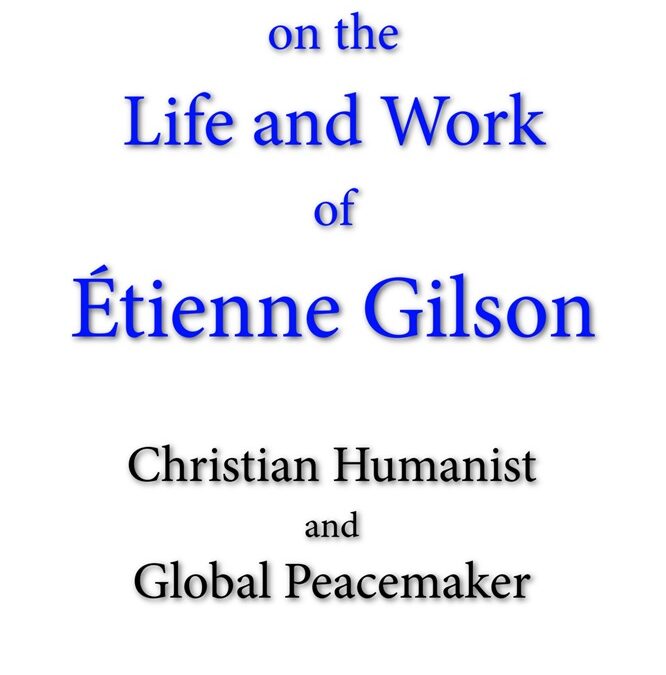
The book of essays offers a comprehensive exploration of the intellectual life of Étienne Gilson, generally considered to be the leading historian of Western philosophy. Gilson’s founding the Pontifical Institute of Mediaeval Studies (PIMS) revolutionized the study of medieval philosophy in universities worldwide and the history of Western philosophy leading up to it.
Gilson, born in 1884 in Paris, received his early education in philosophy at the Lycée Henri IV and the Sorbonne. His philosophical career took him through various teaching roles and scholarly work, with notable contributions in the study of medieval philosophy, particularly the thought of St. Thomas Aquinas. His works, such as Le Thomisme and The Spirit of Medieval Philosophy, are foundational in the integration of Christian philosophy with modern thought. Gilson’s intellectual evolution shifted from a focus on Descartes to a deep engagement with medieval thinkers like St. Thomas and St. Bonaventure, shaping his views on metaphysics and the relationship between faith and reason.
Gilson’s involvement in World War I, where he served as a soldier and a prisoner of war, influenced his philosophical inquiries, especially his reflections on humanism, freedom, and truth. Throughout his life, he engaged in intellectual debates on Christian philosophy, particularly defending the notion of “Christian philosophy” as an authentic intellectual tradition. After World War II, Gilson became involved in international educational and political efforts, contributing to UNESCO and advocating for a Catholic order in education. His later years were marked by an increased focus on existential themes, particularly through his writings on St. Augustine and Duns Scotus.
The book explores both his philosophical contributions and his role as a global intellectual peacemaker, emphasizing his belief in the integration of Christian philosophy within modern intellectual life.
Paperback: $14.95 | Kindle: $9.99
TBA
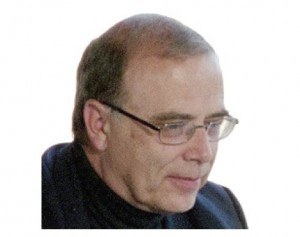 Peter A. Redpath (retired Full Professor of Philosophy at St. John’s University, New York) is author, editor, co-editor of 22 books and many dozens of articles and book reviews. An internationally recognized scholar, since 1980 he has given over 200 invited guest lectures nationally and internationally. Among his many accomplishments, he is CEO of the Aquinas School of Leadership, LLC; former Founder and Chair of the Thomistic Studies Graduate Concentration in Christian Wisdom for Holy Apostles College and Seminary (USA); an Affiliate Scholar with the University Abat Oliba Graduate program (Barcelona, Spain). Peter is also co-founder of the Gilson Society (USA) and the International Etienne Gilson Society, the Adler-Aquinas Institute, and the Angelicum Academy and Great Books Academy homeschool programs (both founded with the help of Mortimer J. Adler); former executive editor of the Value Inquiry Book Series (VIBS) for the Dutch publisher Editions Rodopi, B.V., and special series editor for Rodopi and Brill/Rodopi. Presently, he is a member of the editorial board of Brill Publishing’s Philosophy and Religion (PAR) series, a member of the Advisory Board of the Lyceum Institute, and Officer in Charge of Medieval Christian Philosophy and Academic Liaison to the Holy See for Global Scholarly Publications. For a list of articles published on the Catholic World Report, see http://www.catholicworldreport.com/author/redpath-peter/
Peter A. Redpath (retired Full Professor of Philosophy at St. John’s University, New York) is author, editor, co-editor of 22 books and many dozens of articles and book reviews. An internationally recognized scholar, since 1980 he has given over 200 invited guest lectures nationally and internationally. Among his many accomplishments, he is CEO of the Aquinas School of Leadership, LLC; former Founder and Chair of the Thomistic Studies Graduate Concentration in Christian Wisdom for Holy Apostles College and Seminary (USA); an Affiliate Scholar with the University Abat Oliba Graduate program (Barcelona, Spain). Peter is also co-founder of the Gilson Society (USA) and the International Etienne Gilson Society, the Adler-Aquinas Institute, and the Angelicum Academy and Great Books Academy homeschool programs (both founded with the help of Mortimer J. Adler); former executive editor of the Value Inquiry Book Series (VIBS) for the Dutch publisher Editions Rodopi, B.V., and special series editor for Rodopi and Brill/Rodopi. Presently, he is a member of the editorial board of Brill Publishing’s Philosophy and Religion (PAR) series, a member of the Advisory Board of the Lyceum Institute, and Officer in Charge of Medieval Christian Philosophy and Academic Liaison to the Holy See for Global Scholarly Publications. For a list of articles published on the Catholic World Report, see http://www.catholicworldreport.com/author/redpath-peter/
The page you requested could not be found. Try refining your search, or use the navigation above to locate the post.
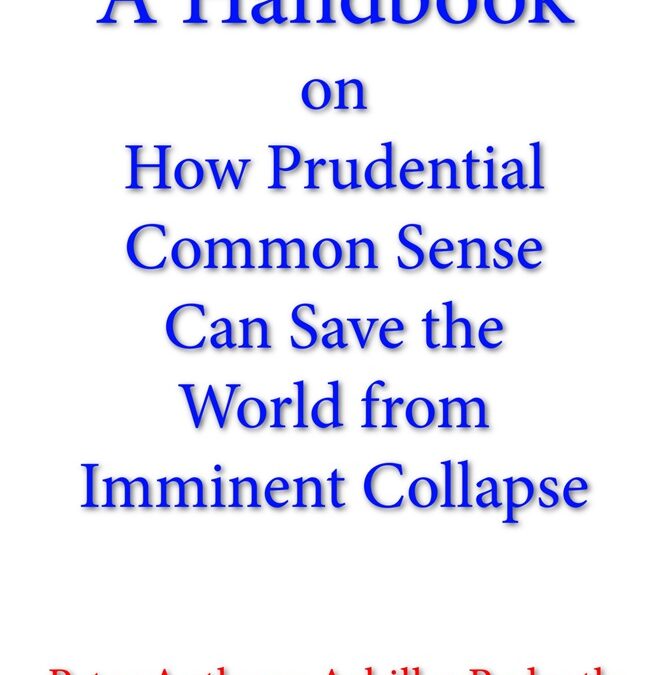
Ever since the start of the twentieth century, and especially toward the rise and end of World War II, some Western intellectuals started to recognize that something was radically wrong with modern Western civilization and culture, that these appeared to be in their twilight years. Starting in the 1930s, these thinkers began to diagnose the problem in some detail. In doing so, in one way or another, they tended to arrive at the same conclusion: outside of the intellectual order of what, even today, Westerners call ‘science’ or ‘physical science,’ the West had largely lost its conviction that any truth or wisdom existed. Outside this narrow intellectual sphere, most Westerners had largely turned into skeptics and sophists.
While many contemporary Westerners tend to view the West’s present decline to be due to a loss of faith, these intellectuals disagreed. They attributed this decay to a loss of logos, of reason, especially of wisdom and prudence in touch with sense reality and common sense.
Belief has not been something in decline in the modern West, or world in general. It has existed, is, everywhere. Even ‘science’ is supposed to be simply one more ‘belief system,’ or ‘feeling,’ supposedly superior to other forms of belief or feeling because it is an ‘Enlightened,’ not a backward, ‘religious belief system’ or ‘feeling.’ The problem with the modern world is not that we believe in nothing. It is that we believe in everything except religion in touch with commonsense reality. We have lost our understanding of the range of reason and have largely turned into skeptics and sophists: secularized fideists.
Anyone familiar with Western intellectual history knows: (1) metaphysical principles and the moral and intellectual virtue of prudence found civilizations and that, based upon these principles, civilizations generate cultures of different kinds; and (2) once cultures lose their conviction about the truth of their founding principles of metaphysics and prudence, they decay from within. Hence, the existence of strong metaphysical and prudential commonsense convictions generates civilizations, and skepticism and doubt about them kill civilizations.
Realizing these truths about civilizational and cultural experience, some Western thinkers of the last century recognized that the West needed a renaissance of metaphysical and moral reason to bridge the gap between wisdom and science that appeared to be the root cause of the skeptical and sophistic mindset that, for centuries, has been causing the West progressively to rot from within. Unhappily, having spent most of their lives diagnosing the problem, these scholars did not have time to do what, with their help, I have tried to do in this collection of essays—write the full story they had sought to tell.
Paperback: $14.95 | Kindle: $9.99
“Practical, thought-provoking, ‘on the mark’, within a philosophical context!!” – Angela Puglisi, Professorial Lecturer, Georgetown University
“I find that it is opening new inroads for me into Dr. Redpath’s thinking about organisational wholes, and about his customary method of dividing into genus and species (which I am beginning to appreciate as a way of differentiating in order to relate). I especially find that anchoring all of these concepts into Dr. Redpath’s lived experience makes that much difference!” – Luigi Rossi, Assistant Professor (Maître de Conférences) of Education at the Catholic University of the West in Angers (France), and a member of the scientific committee of the “John Henry Newman” Chair at the Catholic University of Ávila (Spain)
 Peter A. Redpath (retired Full Professor of Philosophy at St. John’s University, New York) is author, editor, co-editor of 22 books and many dozens of articles and book reviews. An internationally recognized scholar, since 1980 he has given over 200 invited guest lectures nationally and internationally. Among his many accomplishments, he is CEO of the Aquinas School of Leadership, LLC; former Founder and Chair of the Thomistic Studies Graduate Concentration in Christian Wisdom for Holy Apostles College and Seminary (USA); an Affiliate Scholar with the University Abat Oliba Graduate program (Barcelona, Spain). Peter is also co-founder of the Gilson Society (USA) and the International Etienne Gilson Society, the Adler-Aquinas Institute, and the Angelicum Academy and Great Books Academy homeschool programs (both founded with the help of Mortimer J. Adler); former executive editor of the Value Inquiry Book Series (VIBS) for the Dutch publisher Editions Rodopi, B.V., and special series editor for Rodopi and Brill/Rodopi. Presently, he is a member of the editorial board of Brill Publishing’s Philosophy and Religion (PAR) series, a member of the Advisory Board of the Lyceum Institute, and Officer in Charge of Medieval Christian Philosophy and Academic Liaison to the Holy See for Global Scholarly Publications. For a list of articles published on the Catholic World Report, see http://www.catholicworldreport.com/author/redpath-peter/
Peter A. Redpath (retired Full Professor of Philosophy at St. John’s University, New York) is author, editor, co-editor of 22 books and many dozens of articles and book reviews. An internationally recognized scholar, since 1980 he has given over 200 invited guest lectures nationally and internationally. Among his many accomplishments, he is CEO of the Aquinas School of Leadership, LLC; former Founder and Chair of the Thomistic Studies Graduate Concentration in Christian Wisdom for Holy Apostles College and Seminary (USA); an Affiliate Scholar with the University Abat Oliba Graduate program (Barcelona, Spain). Peter is also co-founder of the Gilson Society (USA) and the International Etienne Gilson Society, the Adler-Aquinas Institute, and the Angelicum Academy and Great Books Academy homeschool programs (both founded with the help of Mortimer J. Adler); former executive editor of the Value Inquiry Book Series (VIBS) for the Dutch publisher Editions Rodopi, B.V., and special series editor for Rodopi and Brill/Rodopi. Presently, he is a member of the editorial board of Brill Publishing’s Philosophy and Religion (PAR) series, a member of the Advisory Board of the Lyceum Institute, and Officer in Charge of Medieval Christian Philosophy and Academic Liaison to the Holy See for Global Scholarly Publications. For a list of articles published on the Catholic World Report, see http://www.catholicworldreport.com/author/redpath-peter/
The page you requested could not be found. Try refining your search, or use the navigation above to locate the post.
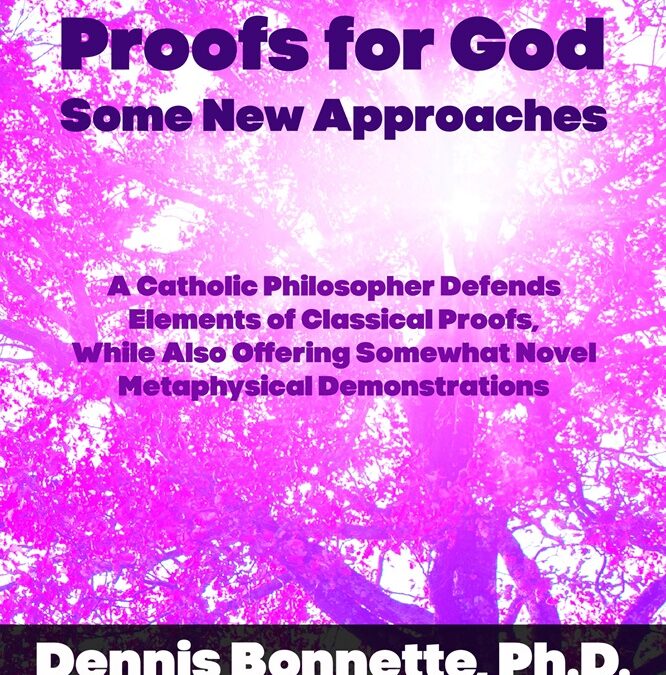
Proofs for God–Some New Approaches explains and defends the metaphysical first principles employed in the traditional proofs for God as classically presented by St. Thomas Aquinas and shows how the central notions of act and potency as used in the proof from motion are inherent in those first principles of being.
Paperback: $14.95 | Kindle: $9.99
“Well-trained in Thomistic epistemology and metaphysics, Bonnette is able to apply calm and rational responses to those who raise questions about the existence of God, the freedom of the will, the essential difference between humans and animals, and the possibility of miracles.” – Dr. Robert Fastiggi, Professor of Dogmatic Theology, Sacred Heart Major Seminary, Detroit, MI
“Dr. Dennis Bonnette’s work has had a very large impact — everything he writes gets noticed — no doubt due to his unwavering commitment to orthodoxy. Rational Responses to Skepticism is a true contribution to Catholic thought.” – Matthew Levering, James N. Jr. and Mary D. Perry Chair of Theology, Mundelein Seminary
The page you requested could not be found. Try refining your search, or use the navigation above to locate the post.
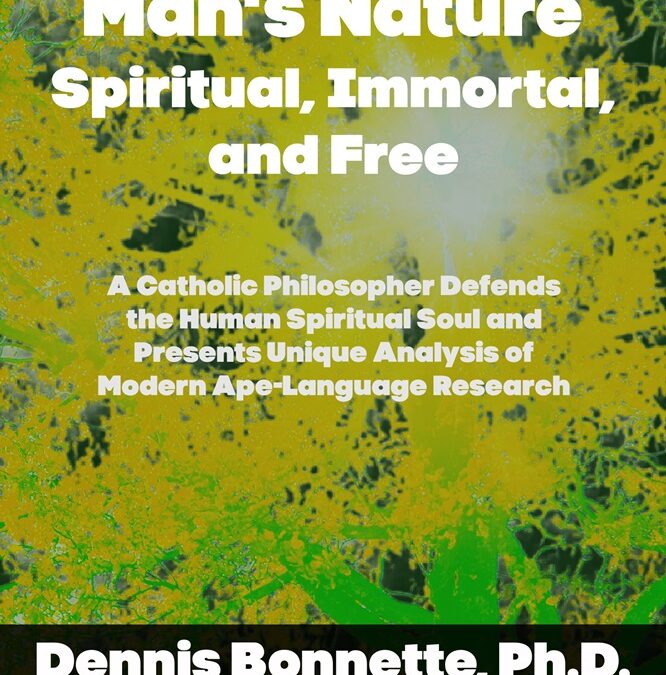
Man’s Nature–Spiritual, Immortal, and Free is a work of philosophical anthropology that demonstrates that soul and body are two co-principles united in a single substance, the soul of which is immaterial and spiritual and will, as such, survive the death of the composite.
Paperback: $14.95 | Kindle: $9.99
“Well-trained in Thomistic epistemology and metaphysics, Bonnette is able to apply calm and rational responses to those who raise questions about the existence of God, the freedom of the will, the essential difference between humans and animals, and the possibility of miracles.” – Dr. Robert Fastiggi, Professor of Dogmatic Theology, Sacred Heart Major Seminary, Detroit, MI
“Dr. Dennis Bonnette’s work has had a very large impact — everything he writes gets noticed — no doubt due to his unwavering commitment to orthodoxy. Rational Responses to Skepticism is a true contribution to Catholic thought.” – Matthew Levering, James N. Jr. and Mary D. Perry Chair of Theology, Mundelein Seminary
The page you requested could not be found. Try refining your search, or use the navigation above to locate the post.
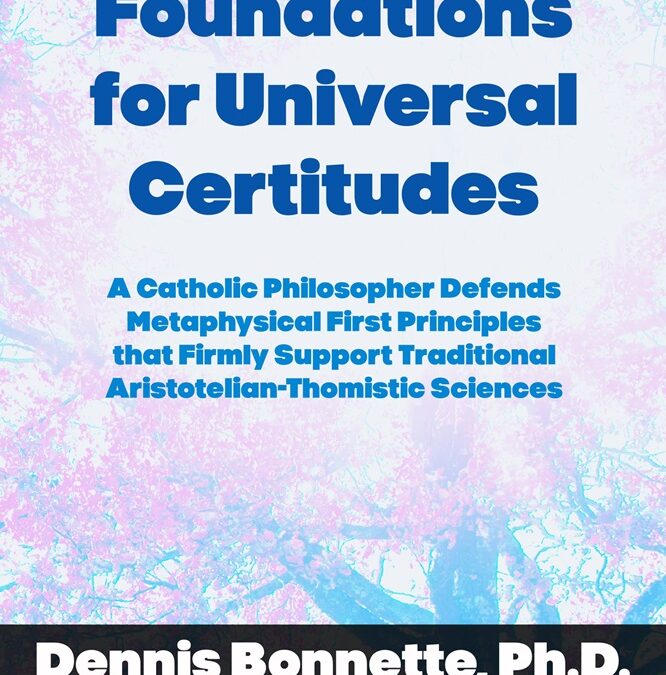
Foundations for Universal Certitudes demonstrates the apodictic certainty of some metaphysical first principles which apply to all things and which can be used as the basis for demonstrating a much larger body of absolute truths.
Paperback: $14.95 | Kindle: $9.99
“Well-trained in Thomistic epistemology and metaphysics, Bonnette is able to apply calm and rational responses to those who raise questions about the existence of God, the freedom of the will, the essential difference between humans and animals, and the possibility of miracles.” – Dr. Robert Fastiggi, Professor of Dogmatic Theology, Sacred Heart Major Seminary, Detroit, MI
“Dr. Dennis Bonnette’s work has had a very large impact — everything he writes gets noticed — no doubt due to his unwavering commitment to orthodoxy. Rational Responses to Skepticism is a true contribution to Catholic thought.” – Matthew Levering, James N. Jr. and Mary D. Perry Chair of Theology, Mundelein Seminary
The page you requested could not be found. Try refining your search, or use the navigation above to locate the post.
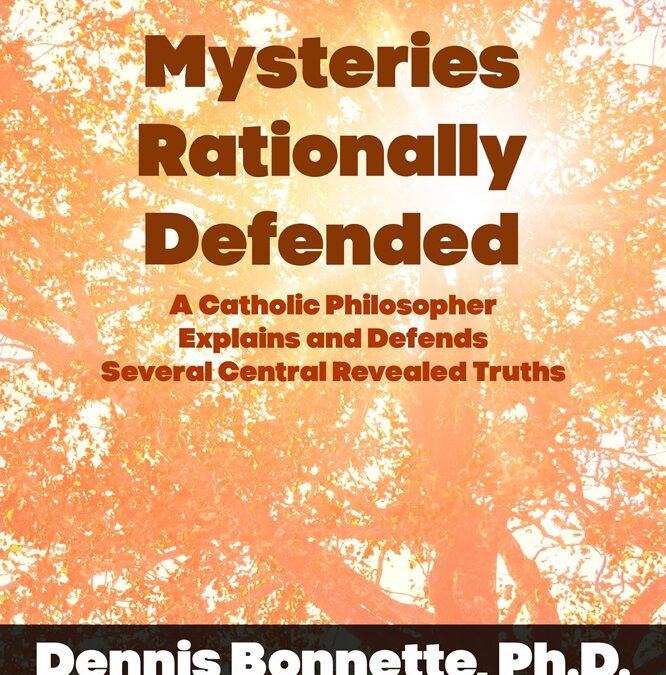
Revealed Mysteries Rationally Defended addresses the metaphysics of miracles and the manner in which supernatural grace perfects our natural world.
Paperback: $14.95| Kindle: $9.99
“Well-trained in Thomistic epistemology and metaphysics, Bonnette is able to apply calm and rational responses to those who raise questions about the existence of God, the freedom of the will, the essential difference between humans and animals, and the possibility of miracles.” – Dr. Robert Fastiggi, Professor of Dogmatic Theology, Sacred Heart Major Seminary, Detroit, MI
“Dr. Dennis Bonnette’s work has had a very large impact — everything he writes gets noticed — no doubt due to his unwavering commitment to orthodoxy. Rational Responses to Skepticism is a true contribution to Catholic thought.” – Matthew Levering, James N. Jr. and Mary D. Perry Chair of Theology, Mundelein Seminary
The page you requested could not be found. Try refining your search, or use the navigation above to locate the post.